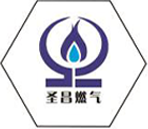
Sep . 01, 2024 10:29
Back to list
Shut-Off Valve - Essential Control for Fluid Systems
Understanding Shut-off Valves Essential Components for Fluid Control
Shut-off valves play a crucial role in various industrial applications, serving as key components in fluid control systems. These valves are designed to stop the flow of liquid or gas in a pipeline, making them indispensable for maintaining safety and efficiency in numerous processes.
A shut-off valve can be operated manually or automatically and is typically installed in locations where there is a need to quickly halt the flow of fluids. For instance, in the event of a leak or an emergency, shutting off the valve can prevent further complications, protecting both personnel and equipment. This functionality is vital in industries such as oil and gas, water treatment, and chemical manufacturing.
There are several types of shut-off valves, each suited for specific applications
. The most common types include ball valves, gate valves, and globe valves. Ball valves are favored for their quick operation, often allowing for a full on/off flow within a quarter turn. Gate valves, on the other hand, are used primarily for applications where minimal pressure loss is essential, as they provide a straight-line flow path. Globe valves are particularly effective for regulating flow, making them suitable for applications where precise control is required.shut-off valve

When selecting a shut-off valve, factors such as the type of fluid, pressure and temperature conditions, and the intended application must be considered. Proper sizing and material selection are critical for ensuring the valve performs effectively and safely throughout its operational life. Stainless steel and brass are common materials for shut-off valves, known for their durability and resistance to corrosion.
Maintenance of shut-off valves is essential for optimal performance. Regular inspections can help identify wear and tear, preventing potential failures that could lead to costly downtimes or hazardous situations. Operators should be trained to understand the operation and maintenance requirements of these valves to ensure they can respond appropriately in emergencies.
In summary, shut-off valves are more than just simple mechanical devices; they are vital safety elements in fluid handling systems. Understanding how they work and their importance in various industries can lead to improved safety practices and enhanced operational efficiencies. As technology advances, the integration of advanced control systems and smart technologies into shut-off valves will further enhance their functionality and reliability.
Next:
Latest news
-
Safety Valve Spring-Loaded Design Overpressure ProtectionNewsJul.25,2025
-
Precision Voltage Regulator AC5 Accuracy Grade PerformanceNewsJul.25,2025
-
Natural Gas Pressure Regulating Skid Industrial Pipeline ApplicationsNewsJul.25,2025
-
Natural Gas Filter Stainless Steel Mesh Element DesignNewsJul.25,2025
-
Gas Pressure Regulator Valve Direct-Acting Spring-Loaded DesignNewsJul.25,2025
-
Decompression Equipment Multi-Stage Heat Exchange System DesignNewsJul.25,2025

